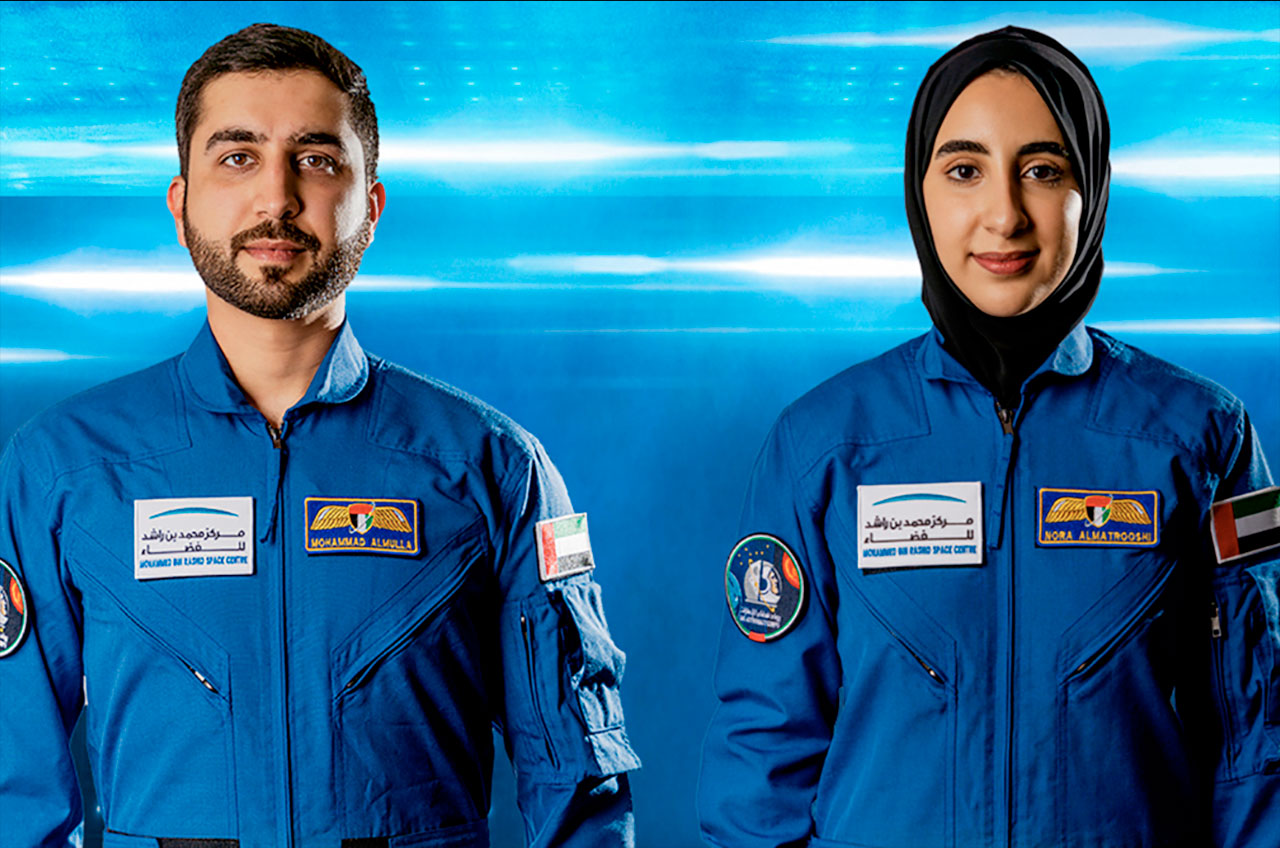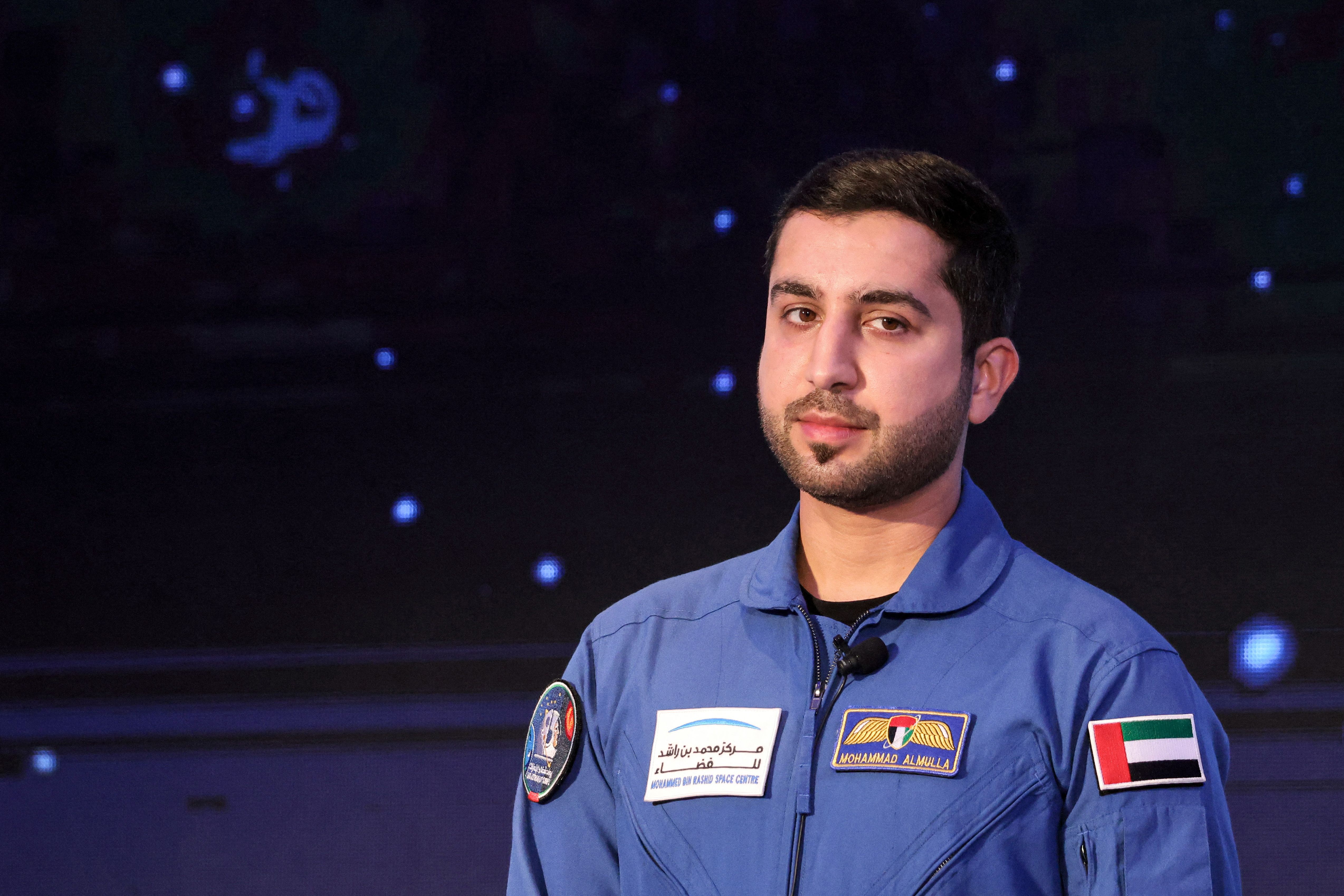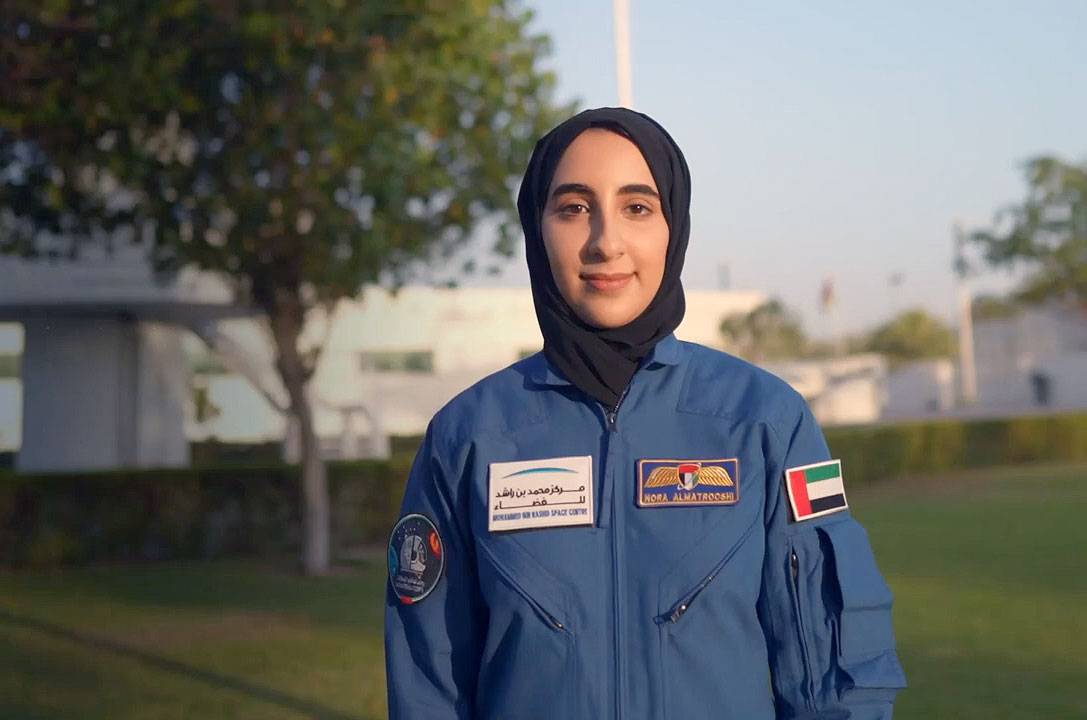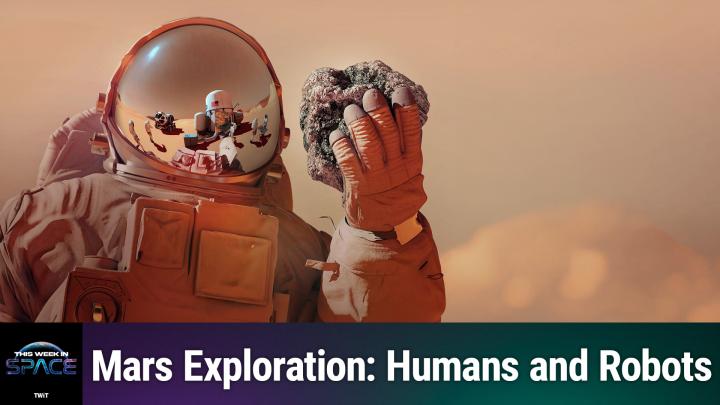The United Arab Emirates has 2 new astronauts. They're shooting for the moon.

Breaking space news, the latest updates on rocket launches, skywatching events and more!
You are now subscribed
Your newsletter sign-up was successful
Want to add more newsletters?
Nora AlMatrooshi's first spaceflight equipment was made of paper and cardboard boxes, but she'll soon spend two years at NASA's Johnson Space Center in Texas training to use the real thing in orbit.
In April, AlMatrooshi, a 28-year-old mechanical engineer, became one of two new astronauts for the United Arab Emirates (UAE) and the first female Arab astronaut. Her colleague, Mohammad AlMulla, 32 at the announcement, spent more than a decade as a helicopter pilot and teacher with Dubai's police force before deciding to apply to join the astronaut corps.
The UAE is a newcomer to the spaceflight scene: The nation selected its first two astronauts just three years ago. One, Hazzaa AlMansoori, flew on Russia's Soyuz system a year later and spent a week aboard the International Space Station. Now, AlMansoori and his backup, Sultan AlNeyadi, are completing more thorough spaceflight training with NASA, including preparing for spacewalks in the famously huge swimming pool officially dubbed the Neutral Buoyancy Lab.
Related: Hazzaa Almansoori: The 1st Emirati astronaut's space station mission in photos
AlMatrooshi and AlMulla will soon follow in their footsteps. For now, the two newly minted astronauts are completing preliminary training activities in the UAE, including studying Russian and learning to dive.
But both have their sights set on a much more exotic destination than Texas, Russia or the seafloor: the moon.
That's where Matrooshi and her childhood classmates launched to in their vivid imaginations with the help of those cardboard tools, the ever-popular astronaut freeze-dried ice cream sandwich and a talented teacher. Ever since that day, she says, she has dreamed of becoming an astronaut.
Breaking space news, the latest updates on rocket launches, skywatching events and more!
"You know when, as a kid, you just really want to do something, and then when you're all grown up you go do it just for the sake of satisfying that inner child?" AlMatrooshi told Space.com. "I guess it's the same thing. I want to satisfy the inner child who actually wanted to go to space and step on the moon."
She studied engineering after seeing the field highlighted in a documentary about an International Space Station crew, then worked for the petroleum industry before being accepted to the astronaut corps. It's a pivot that mirrors that of the UAE itself, which has poured work into the space sector, including its trailblazing Hope orbiter now studying Mars, as a conscious pivot away from a decades-old reliance on oil revenue to jumpstart a more broadly palatable economic sector.
"I'll be implementing the same knowledge now, just in a different field," she said. "As an engineer, you have the basic and fundamental, let's say laws, and then you just implement that information according to the field you're in."
From helicopter to spacecraft

Although AlMatrooshi has had her eye on spaceflight for most of her life, her counterpart AlMulla took a different path to the astronaut corps. AlMulla spent more than a decade as a helicopter pilot and teacher with the police force of Dubai, one of the seven emirates of the UAE.
There, he's had a prime view of how the nation, which marks the 50th anniversary of its founding, has developed over the years. "Flying is something you can't describe, actually, especially flying over Dubai," he said. "It's a city that doesn't sleep, it changes very fast. Even if you stop flying for one month and you fly, you will feel the change in Dubai."
In 2019, AlMulla met AlMansoori shortly after his time in orbit and decided to try to join the astronaut corps himself. "I was so proud of him," AlMulla told Space.com. "I felt that feeling that I want to be with him, like one team, I want to represent my country."
Both AlMulla and AlMatrooshi said that their new roles came with big responsibilities. They've leaned on each other and on AlMansoori and AlNeyadi, consulting with the pair regularly throughout the process. "They are helping us already from day one, they already give us advice and tips for the next stages," AlMulla said. "I always say that we are lucky to be the second batch of astronauts."
From Earth to the moon

Although AlMulla's interest in spaceflight is more recent than AlMatrooshi's, he shares her focus on the moon, even though he knows that's unlikely to be his first destination as an astronaut. "My ambition to go to the moon, it will remain the same, even if I went to the ISS [International Space Station] 100 times," he said. "If you go outside at night you will see the moon. You can feel how close it is to you, you can watch it by your bare eyes."
But first, of course, training. While AlMulla and AlMatrooshi are sharing many of the same lessons, there's one area where AlMatrooshi has some catching up to do, since she's only been a passenger on an aircraft before, never the pilot. Flight training is what she's most looking forward to before the transition to NASA's more comprehensive training slate.
"I like driving, so I don't know if it will be the same, but I do want to experience flying," AlMatrooshi said. "He [AlMulla] always talks about flying as if it's like the most amazing thing in the world, so I want to try it."
Although the nation's space program is eager to highlight AlMatrooshi as the first female Arab astronaut and AlMulla points to her selection as an inspiration to women in the region, she isn't fussed about the distinction.
"For me, it doesn't really matter if I'm the first or the 50th or the 100th because me as a person — my goals, my expectations, my commitment and my effort — would still be the same," AlMatrooshi said.
"If someone is going to chase after a title, I don't believe they'll get very far," she added. "But if they're actually doing something because they want to, because it's their passion and their dream, then they're going to reach further than they even think they can."
Email Meghan Bartels at mbartels@space.com or follow her on Twitter @meghanbartels. Follow us on Twitter @Spacedotcom and on Facebook.

Meghan is a senior writer at Space.com and has more than five years' experience as a science journalist based in New York City. She joined Space.com in July 2018, with previous writing published in outlets including Newsweek and Audubon. Meghan earned an MA in science journalism from New York University and a BA in classics from Georgetown University, and in her free time she enjoys reading and visiting museums. Follow her on Twitter at @meghanbartels.
